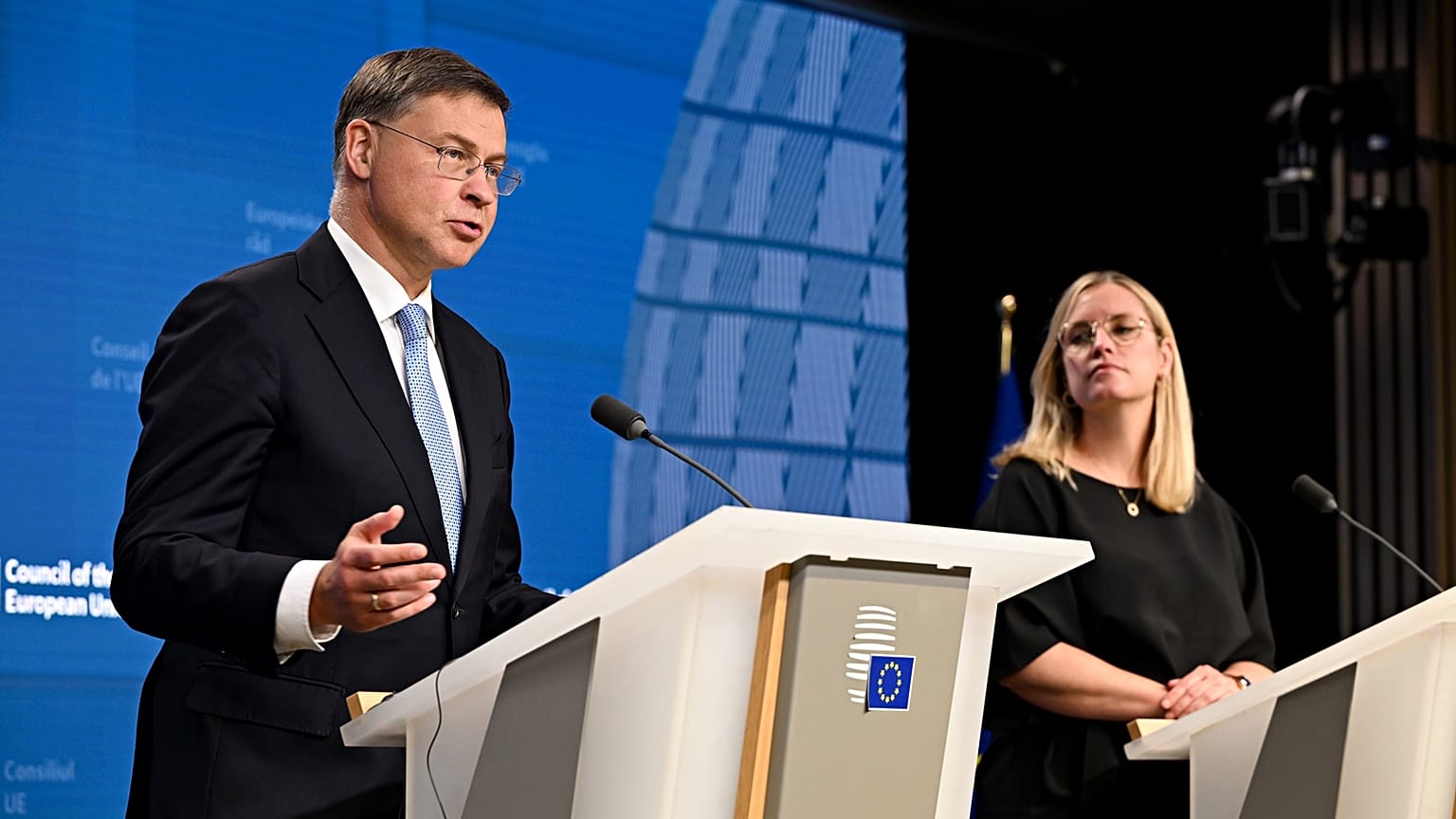Politics
Belgium Faces Political Pressure Over €140 Billion Loan for Ukraine

Support is growing for a €140 billion reparations loan to aid Ukraine, yet Belgium remains resolute in its opposition. Negotiations with the European Commission have stalled, leaving key issues unresolved. Political pressure is intensifying on the Belgian government to reconsider its stance and endorse this groundbreaking initiative, which proposes using frozen Russian assets to finance Ukraine’s military and budget needs over the next two years.
The proposed loan represents a significant financial commitment aimed at bridging Ukraine’s funding gap. According to Danish Finance Minister Stephanie Lose, who chaired a recent meeting, the European Commission’s proposal is “the best and most realistic option” available and should be treated as a matter of utmost priority. Valdis Dombrovskis, the European Commissioner for the Economy, emphasized that this unprecedented plan would secure essential funding for Ukraine without imposing additional burdens on member states with limited fiscal capacity.
“There was wide recognition that this option is the most feasible means of quickly bridging Ukraine’s funding gap,” Dombrovskis stated. He highlighted the importance of providing assistance to Ukraine primarily as grants to prevent escalating the war-torn country’s debt burden. Without access to the frozen Russian assets, alternatives would involve raising funds through market channels, either collectively by the European Union or independently by member states.
Ukraine requires a fresh influx of foreign aid by the second quarter of 2026. The first quarter is expected to be covered through contributions from other G7 allies under an existing line of credit. “We are under time pressure and must move forward in a constructive, pragmatic and cooperative way,” Dombrovskis noted.
Earlier, European Commission President Ursula von der Leyen referred to the reparations loan as the “most effective way” to support Ukraine’s struggle for freedom and increase the costs for Russia. Ukrainian President Volodymyr Zelenskyy described the loan as a “big-big loss” for Moscow, asserting that while freezing assets is one thing, reallocating them to Ukraine represents a substantial shift. He added that Kyiv would only repay the loan if Russia agrees to cover war reparations.
Despite this growing support, Belgium has yet to signal any willingness to approve the plan. As the host of Euroclear, which manages immobilized Russian assets, Belgium is concerned about potential retaliation from the Kremlin. The country is bound by a Soviet-era investment treaty with Russia that includes provisions for arbitration.
Belgian Prime Minister Bart De Wever has called for “maximum” legal certainty, demanding binding guarantees from all EU member states to ensure comprehensive burden-sharing and full transparency regarding Russian assets held in various jurisdictions. Technical discussions between Belgium and the European Commission have focused on these pivotal issues, but have not yielded any breakthroughs.
“No progress at all so far,” a Belgian source familiar with the negotiations commented. The source expressed concern over the Commission’s insistence on pursuing the reparations loan, despite a mandate from EU leaders to explore alternative options. “Zero risk is not realistic, but the risks are still extremely high. It’s not certain how this will impact the eurozone,” the source added, emphasizing the need for a legal framework that ensures complete burden-sharing.
The ongoing impasse raises questions about whether EU leaders will endorse the reparations loan at their upcoming summit in December 2023. If an agreement is not reached by then, the bloc may have to consider interim solutions to avoid default by Kyiv. In response to Belgium’s concerns, Dombrovskis assured that the Commission is diligently working to address these issues, highlighting the necessity for solidarity and shared risk among member states.
“There are always risks associated with action and with containing the aggressor, but the risks of inaction and not containing the aggressor are even greater,” Dombrovskis emphasized. Meanwhile, Paschal Donohoe, the president of the Eurogroup, indicated that the reparations initiative should advance once Belgium’s legitimate concerns are addressed and all alternatives have been explored.
“There are strong merits to the reparations loan, but there are also trade-offs,” Donohoe remarked. “We are expecting a formal proposal from the European Commission, and after that, the debate on how to move forward will intensify.”
-

 Top Stories3 months ago
Top Stories3 months agoTributes Surge for 9-Year-Old Leon Briody After Cancer Battle
-

 Entertainment4 months ago
Entertainment4 months agoAimee Osbourne Joins Family for Emotional Tribute to Ozzy
-

 Politics4 months ago
Politics4 months agoDanny Healy-Rae Considers Complaint After Altercation with Garda
-

 Top Stories4 months ago
Top Stories4 months agoIreland Enjoys Summer Heat as Hurricane Erin Approaches Atlantic
-

 World5 months ago
World5 months agoHawaii Commemorates 80 Years Since Hiroshima Bombing with Ceremony
-

 Top Stories3 months ago
Top Stories3 months agoNewcastle West Woman Patricia Foley Found Safe After Urgent Search
-

 Top Stories5 months ago
Top Stories5 months agoFianna Fáil TDs Urgently Consider Maire Geoghegan-Quinn for Presidency
-

 World5 months ago
World5 months agoCouple Convicted of Murdering Two-Year-Old Grandson in Wales
-

 World5 months ago
World5 months agoGaza Aid Distribution Tragedy: 20 Killed Amid Ongoing Violence
-

 World5 months ago
World5 months agoAristocrat Constance Marten and Partner Convicted of Infant Murder
-

 Top Stories4 months ago
Top Stories4 months agoClimbing Errigal: A Must-Do Summer Adventure in Donegal
-

 Top Stories4 months ago
Top Stories4 months agoHike Donegal’s Errigal Mountain NOW for Unforgettable Summer Views









